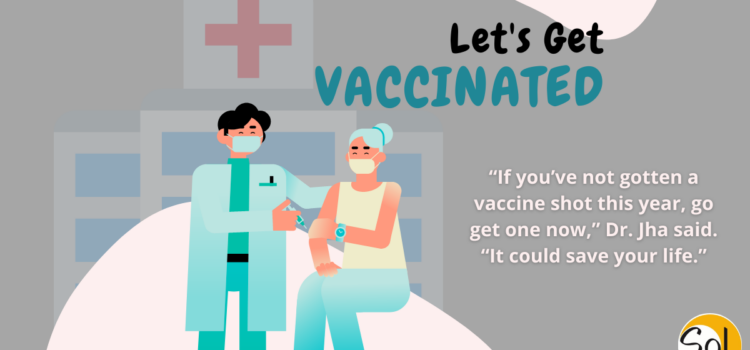
The newly updated booster vaccine is adapted to not only fight against COVID-19 and Omicron but will also help fight against the new variants. This updated booster will demonstrate a high immune response against new variant mutations like BA.1, BA.2, BA.3, and more.
The newly updated booster vaccine should be ready sometime in October, but with the new variant, health experts are saying it is better to get boosted now rather than wait until later.
“The threat to you is now,” said Dr. Anthony Fauci, director of the National Institute of Allergy and Infectious Diseases and the White House’s Chief COVID-19 Medical Officer. “If you are not vaccinated to the fullest—namely, not gotten boosters according to the recommendations—you are putting yourself at increased risk.”
The new variants, BA.4 and BA.5, are more likely to escape antibodies from the blood of fully vaccinated and boosted adults compared with other Omicron subvariants, which means these variants raise the risk of vaccine-breakthrough Covid-19 infections.
The Centers for Disease Control and Prevention (CDC) are still recommending that everyone gets vaccinated and boosted as it is the best way to stay protected.
“If you are previously infected and also vaccinated, you have much more protection from serious disease than prior infection alone, which leads us to recommend that you get vaccinated and stay up to date with boosters,” said CDC director Dr. Rochelle Walensky.
Health officials say that if you get boosted now you can still later get the updated booster vaccine.
“If you get a booster now, it does reduce your risk of getting infected,” said Dr. Ashish Jha, the White House COVID-19 response coordinator. “It does not drive it to zero, but it reduces that risk. And the data are very clear that if you are over 50, that extra booster dramatically lowers the risk of getting into the hospital, going to the ICU, or dying. There are very few things we do in medicine that have the kind of benefit we see from that extra shot.”
The U.S. Food and Drug Administration (FDA) and CDC recommend at least one booster shot for everyone ages 5 and older and a second booster for people ages 50 and older at least four months after their first booster.
Dr. Jha said getting a booster now would not preclude people from getting another one in the fall when the new booster shots are available.
“If you’ve not gotten a vaccine shot this year, go get one now,” Dr. Jha said. “It could save your life.”